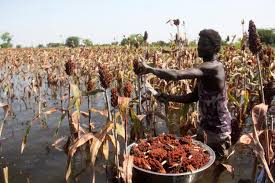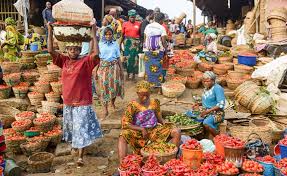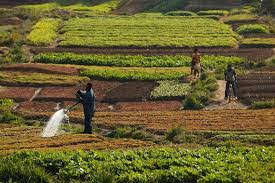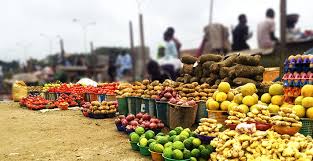Factors affecting food security can range from environmental and climatic challenges to economic and political dynamics, each playing a role in the ability of populations to secure adequate, nutritious food. As the global population grows and resources become increasingly strained, understanding these factors is vital to developing effective strategies to ensure that all people have reliable access to sufficient food.
Environmental factors, such as climate change, soil degradation, and water scarcity, have a direct impact on food production. Unpredictable weather patterns, droughts, floods, and rising temperatures disrupt agricultural activities, reduce crop yields, and threaten livestock health.
Soil quality also plays a crucial role in food production, as poor soil conditions can limit the growth of crops and decrease agricultural productivity. Moreover, limited access to clean water impacts not only crop irrigation but also the health of livestock and the ability of communities to maintain adequate hygiene standards, which are crucial for food utilization.
Economic factors, including income levels, employment opportunities, and food prices, significantly affect food security. In regions where poverty rates are high, individuals and families struggle to afford nutritious food, leading to malnutrition and food insecurity.
Fluctuations in food prices, driven by global market trends and supply chain disruptions, also impact the affordability of food. Economic instability, such as recessions or inflation, further exacerbates food insecurity by reducing household purchasing power and access to essential resources.
Political factors, such as governance, trade policies, and conflict, play a major role in food security. Effective governance is crucial for implementing policies that support agricultural development, resource management, and food distribution.
Conversely, poor governance and corruption can lead to inadequate infrastructure, mismanagement of resources, and a lack of support for small-scale farmers.
Trade policies also influence food security, as import and export restrictions, tariffs, and subsidies affect food availability and prices. In conflict zones, food security is particularly vulnerable, as violence disrupts agricultural activities, displaces communities, and hinders humanitarian efforts to deliver food aid.
Social and demographic factors, including population growth, urbanization, and cultural practices, also influence food security. Rapid population growth increases demand for food, putting pressure on agricultural systems to produce more food with limited resources.
Urbanization, while associated with economic opportunities, often leads to a shift in dietary preferences and increased reliance on processed foods, which may not be as nutritious as fresh produce. Additionally, cultural practices and food preferences affect food choices, nutritional intake, and the overall utilization of available food resources.
Economic Factors Influencing Food Security
1. Income Levels: Higher income levels allow households to purchase a diverse range of foods, improving their nutritional intake. Conversely, low-income households often struggle to access sufficient and nutritious food, leading to food insecurity.
2. Food Prices: Fluctuations in food prices can significantly affect food security. When prices rise, low-income families may reduce their food consumption or shift to cheaper, less nutritious options.
3. Employment Opportunities: Job availability and stability play a crucial role in food security. Unemployment or underemployment can lead to financial strain, making it difficult for families to afford adequate food.
4. Economic Growth: A growing economy can enhance food security by increasing job opportunities, wages, and investment in agricultural infrastructure. Conversely, economic downturns can lead to increased food insecurity.
Environmental Factors Impacting Food Security

1. Climate Change: Climate change affects agricultural productivity through altered weather patterns, increased frequency of extreme weather events, and changes in pest and disease dynamics. These impacts can disrupt food production and threaten food security.
2. Land Degradation: Poor land management practices can lead to soil degradation, reducing agricultural productivity and limiting food availability. Sustainable land management is essential for maintaining soil health.
3. Water Scarcity: Access to clean water is crucial for food production. Water scarcity due to over-extraction, pollution, or climate change can hinder agricultural practices and reduce food supply.
4. Biodiversity Loss: The loss of biodiversity can impact food security by reducing the variety of crops available for cultivation and increasing vulnerability to pests and diseases.
Political Stability and Food Security
1. Governance and Policy: Effective governance and policies play a critical role in ensuring food security. Political stability can foster an environment conducive to agricultural investment and innovation.
2. Conflict and Instability: Armed conflict and political instability disrupt food production and distribution systems, leading to food shortages and increased hunger in affected areas.
3. Trade Policies: National and international trade policies can impact food security by influencing the availability and affordability of food imports and exports. Trade barriers can limit access to essential food items.
4. Social Safety Nets: Government programs that provide food assistance and support to vulnerable populations can mitigate the impacts of economic downturns and ensure access to food.
Read Also: 10 Medicinal Health Benefits of Artemisia maritima (Sea Wormwood)
Social Factors Affecting Food Security

1. Education and Awareness: Education plays a crucial role in food security. Individuals with higher levels of education are often better equipped to make informed decisions about nutrition and food choices.
2. Cultural Factors: Cultural beliefs and practices can influence dietary preferences and food consumption patterns. Understanding cultural contexts is essential for addressing food security effectively.
3. Gender Roles: Gender inequalities can impact food security, as women often play a key role in food production and preparation. Empowering women through education and access to resources can enhance food security for families and communities.
4. Community Support: Strong community networks can provide essential support for food security through shared resources, local food systems, and collective action to address food insecurity.
Technological Advancements in Food Production
1. Precision Agriculture: Utilizing GPS technology and data analytics, precision agriculture enables farmers to optimize inputs like water and fertilizers, improving yields while minimizing waste and environmental impact.
2. Genetically Modified Organisms (GMOs): GMOs can enhance crop resistance to pests, diseases, and environmental stress, potentially increasing food production and stability.
3. Sustainable Farming Practices: Innovations such as agroecology and organic farming promote environmentally friendly practices that enhance soil health and biodiversity, contributing to long-term food security.
4. Automation and Robotics: The use of drones, automated machinery, and robotics in agriculture can increase efficiency and reduce labor costs, enabling higher productivity in food production.
Global Trade and Its Effects on Food Security
1. Trade Liberalization: Reducing trade barriers allows countries to import food more easily, enhancing food availability and variety, particularly in regions with limited agricultural capacity.
2. Market Volatility: Global trade can expose countries to price fluctuations, which can threaten food security, especially for low-income populations who may struggle to afford basic food items.
3. Export Dependence: Countries that rely heavily on food imports may be vulnerable to external shocks, such as trade disputes or global supply chain disruptions, affecting their food security.
4. Food Safety Standards: International trade requires adherence to food safety standards, which can improve food quality and safety for consumers, contributing to overall food security.
Climate Change and Food Security Challenges
1. Altered Weather Patterns: Climate change can lead to unpredictable weather conditions, affecting crop yields and food production stability.
2. Water Scarcity: Changes in precipitation patterns and increased evaporation rates can reduce water availability for agriculture, threatening food production.
3. Crop and Livestock Vulnerability: Rising temperatures and changing ecosystems can increase the vulnerability of crops and livestock to pests, diseases, and heat stress, impacting overall productivity.
4. Sea-Level Rise: Coastal agricultural areas may face salinization and loss of arable land due to rising sea levels, further threatening food security in these regions.
Read Also: 11 Medicinal Health Benefits of Dendrobium Plicatile
Strategies to Enhance Food Security

1. Sustainable Agricultural Practices: Implementing practices that promote soil health, conserve water, and enhance biodiversity can improve resilience and productivity in food systems.
2. Investment in Research and Development: Supporting agricultural research can lead to innovations in crop varieties, pest management, and sustainable practices, enhancing food security.
3. Strengthening Local Food Systems: Encouraging local food production and distribution can reduce reliance on imports and increase food availability in communities, enhancing resilience to external shocks.
4. Policy Interventions: Governments can play a crucial role in enhancing food security through policies that support farmers, promote equitable access to resources, and address food waste and loss.
Food security is influenced by a complex interplay of economic, environmental, political, and social factors.
Understanding these influences is essential for developing effective strategies to enhance food security and ensure that all individuals have access to the food they need for a healthy and active life.
Do you have any questions, suggestions, or contributions? If so, please feel free to use the comment box below to share your thoughts. We also encourage you to kindly share this information with others who might benefit from it. Since we can’t reach everyone at once, we truly appreciate your help in spreading the word. Thank you so much for your support and for sharing!
Read Also: How To Educate Yourself On Climate Change
Frequently Asked Questions
We will update this section soon.

